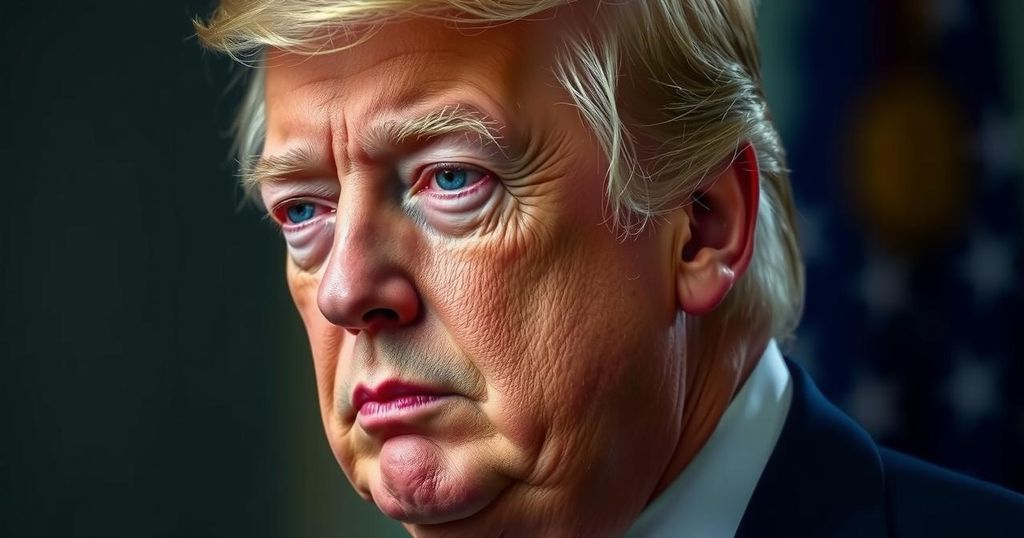Scrutiny Over Tulsi Gabbard’s Intelligence Director Nomination Due to Controversial Views
Tulsi Gabbard’s nomination as the United States Director of National Intelligence is under scrutiny due to her controversial past, including a meeting with Syrian leader Assad and statements viewed as pro-Kremlin. Concerns have been raised regarding her judgment and the ramifications for US intelligence cooperation with allies, highlighting a contentious confirmation process ahead.
Former Congresswoman Tulsi Gabbard’s appointment as the United States Director of National Intelligence (DNI) by President-elect Donald Trump is facing heightened scrutiny due to her controversial past. Gabbard notably met with Syrian President Bashar al-Assad in 2017 and has made statements about Russia’s invasion of Ukraine that critics claim echo Kremlin narratives. As the potential steward of 18 US spy agencies, concerns have arisen regarding her ability to foster intelligence cooperation with allies, given her staunch anti-war stance and previous critiques of the US intelligence community.
Gabbard’s military background as a lieutenant colonel in the Army Reserve and her deployment experience in Iraq and Kuwait were highlighted by Trump as valuable traits for overseeing the intelligence community. However, former national security officials have expressed doubts about her credibility, emphasizing that her judgment may lead foreign allies to withhold intelligence sharing. Lewis Luken, a retired diplomat, articulated that Gabbard’s decisions could provoke questions about the safety of sharing vital information with the United States.
The unprecedented endorsement of Gabbard by Russian media further complicates her nomination. Prominent Russian talk show host Olga Skabeyeva praised Gabbard for explaining Russia’s actions regarding Ukraine and meeting with Assad amidst the Syrian civil war. Gabbard has faced bipartisan criticism for her views and interviews regarding foreign conflicts, particularly her claims regarding the Syrian regime and her allegations surrounding US involvement in Ukraine’s defense against Russia.
Gabbard’s past positions have raised significant alarms among US intelligence circles. Concerns are being voiced about how her views on Assad and Putin might affect the US’s diplomatic relations with allies. A former NATO official suggested that her nomination may signal disquietude among partner nations. Conversely, others contend that the strength of longstanding relationships may prevail over individual appointments.
Gabbard’s confirmation process will likely be contentious, with many senators planning to question her views. Elissa Slotkin, a former CIA officer, expressed that Gabbard’s previously stated ideas appear to favor adversaries. Meanwhile, supportive Republicans, such as Senator Markwayne Mullin, encourage dialogue and understanding through direct conversations with Gabbard.
Ultimately, as Gabbard navigates her path toward confirmation, senators will weigh her past statements against the authority the DNI holds in shaping national security perceptions. The implications of this appointment may resonate through intelligence operations, impacting the US’s global standing and cooperation with allied nations. Her ability to assuage concerns will be crucial in determining her future role within the national intelligence community.
The appointment of the Director of National Intelligence (DNI) in the United States is a pivotal role, responsible for overseeing the nation’s vital intelligence agencies and ensuring effective collaboration among them. This position is particularly sensitive as it entails maintaining trust and confidence from international allies who share intelligence with the US. Tulsi Gabbard, who has a controversial political history with foreign policy positions supportive of non-intervention and skepticism toward traditional US stances on regimes such as Assad’s in Syria, has become a contentious figure in the context of national security and diplomacy. Her recent transition to the Republican Party adds another layer of complexity to her nomination amid divided political opinions.
In conclusion, Tulsi Gabbard’s nomination as DNI has sparked significant debate within the United States, primarily due to her controversial stances on Syria and Russia. The concerns voiced by national security officials and lawmakers highlight the potential implications of her views on international intelligence cooperation. Gabbard’s ability to navigate through her confirmation process will ultimately depend on her capacity to address these concerns effectively while demonstrating her commitment to America’s national security interests in a rapidly changing global landscape.
Original Source: www.bbc.com




Post Comment